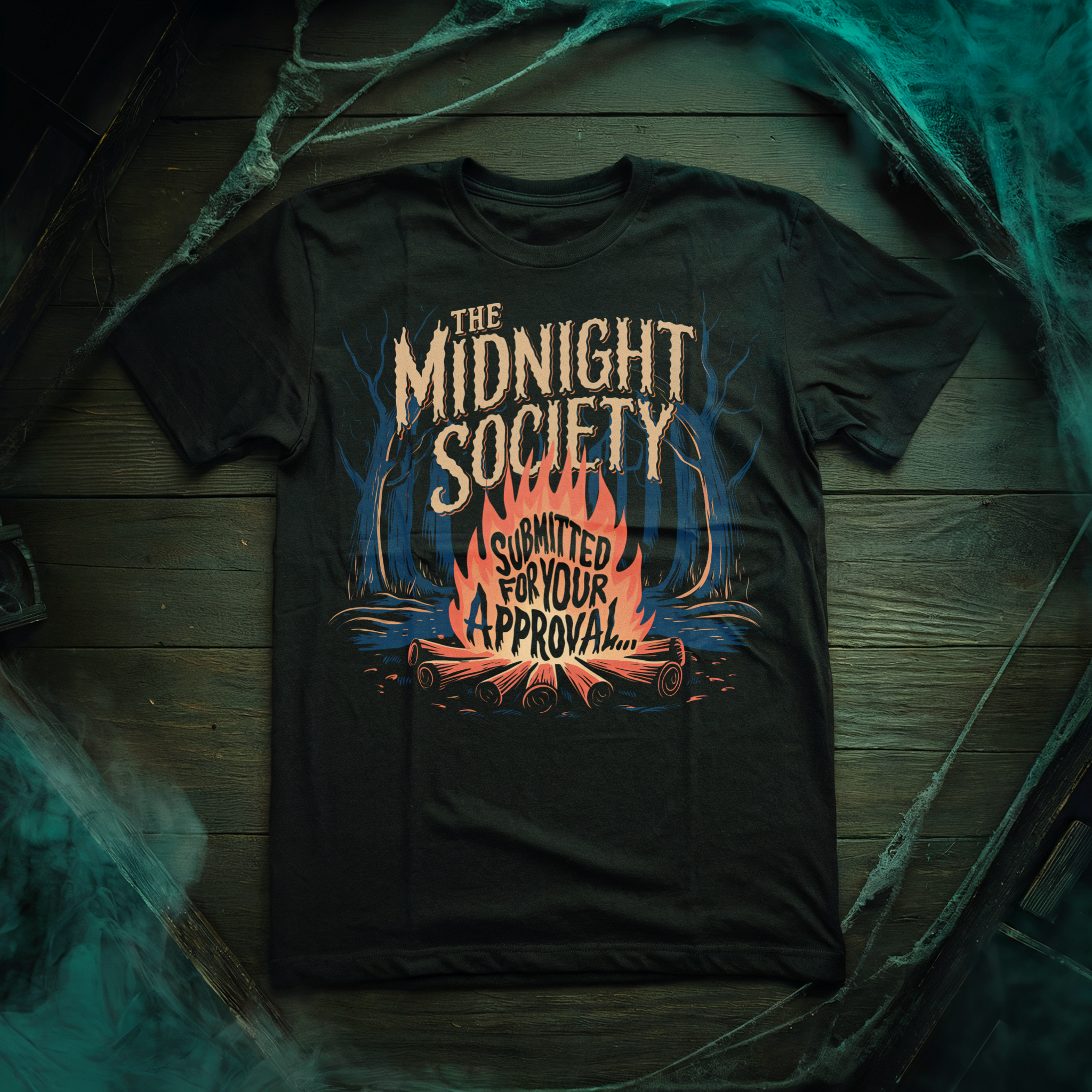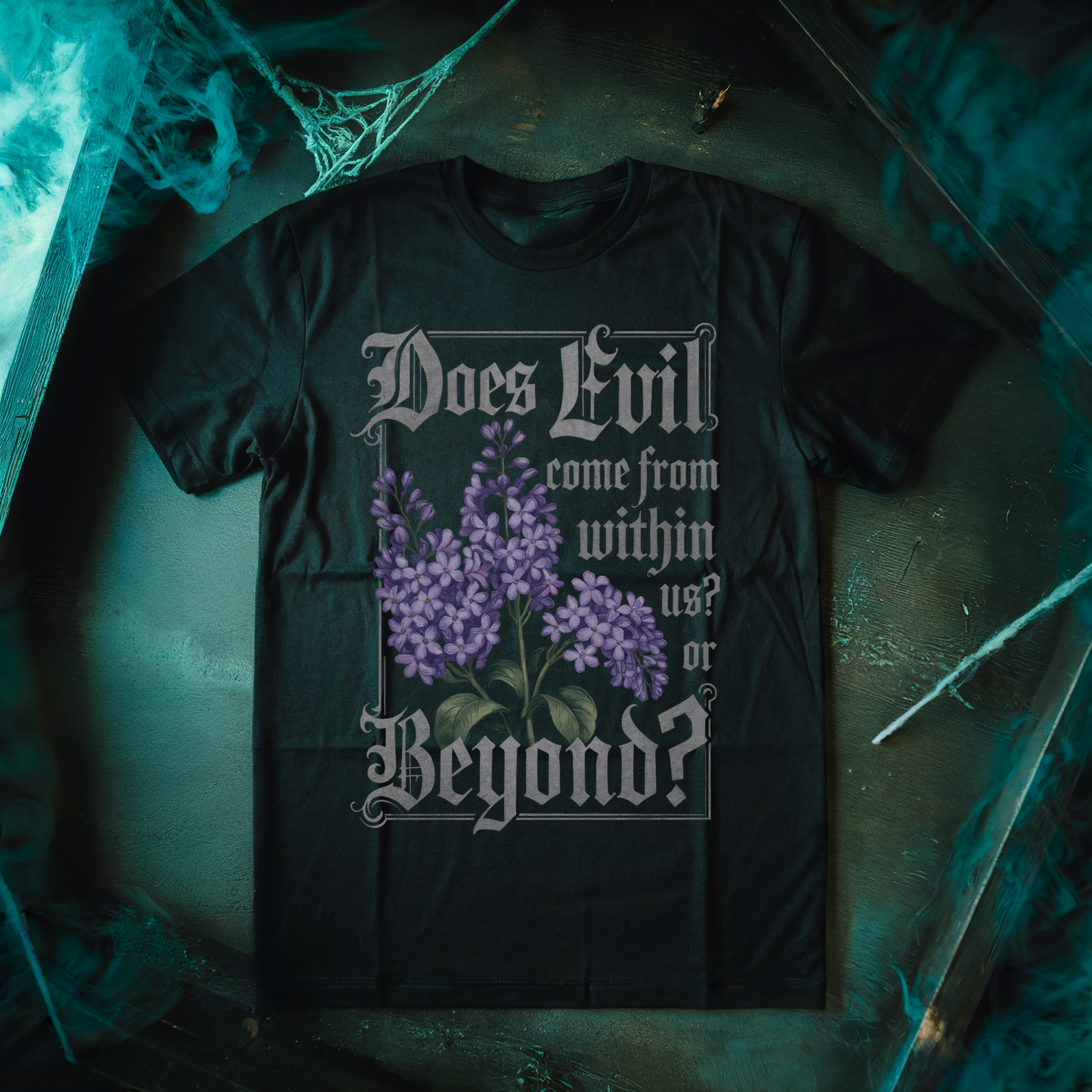I first came across Michael Peterson’s work when my friends and I watched his debut feature Lloyd the Conqueror for the sole reason of hearing the end credit song. I wasn’t expecting to be scared sh*tless years later when I saw his sophomore film Knuckleball, a far deadly departure from the nerdy comedy I pegged as his style.
I caught up with Peterson, speaking over the phone from opposite sides of Canada. I mentioned how Montreal was going through yet another heat wave, whereas Peterson was already being hit with snow in Calgary. We talked about the process of filming Knuckleball and meeting legend Michael Ironside, though I was able to steer the conversation to focus on my all-time obsessions: Canadian metal and Turbo Kid.
Chris Aitkens for Nightmare on Film Street: First thing, I wanted to congratulate you on being able to trick a bunch of Trigger Effect fans into watching Lloyd the Conqueror from start to finish.
Michael Peterson: Well, I hoped you enjoyed it. (laughs) And the other music in it is pretty good, I thought. I was essentially the music supervisor on that thing. I called up Trigger Effect, Barn Burner, and Bison BC, and all those guys. They were awesome.
NOFS: Why did you want to transition from comedy to a dark thriller like Knuckleball?
MP: I suppose that they’re the same, in the sense that it’s all visceral responses that you’re going for. In comedy, it’s either funny or it isn’t. And with this kind of movie, it’s either tense or it isn’t. There’s less room for discussion, because it’s all coming from your lizard brain. I like all sorts of movies. I like genre movies, and I like to work in different spaces and try different things to challenge myself.
NOFS: I understand that the idea for the story came from the anxieties you felt of being a father.
MP: Oh, yeah. Big time. There’s no manual for raising kids. You’re worried that they’re going to hurt themselves, or you’re going to do a bad job, or not make the right decision and they’ll end up hurt or damaged because of it. It’s terrifying. I’m not an overprotective parent or anything like that. But you essentially want to equip them to look after themselves, but it takes a while for that to happen. So until that happens, you’re responsible, and you’re always worried that you’re going to fuck it up.
NOFS: So would you want your kids to join the Scouts or get survival training?
MP: (laughs) They’re pretty good, man. I think as long as they have a skateboard and five bucks, they can probably get out of most problems. I feel pretty good about how they’ve been raised. They’re independent, but we’re not absent. They’re interested in trying new stuff, but they have good judgement. They take risks, but they’re calculated. So far so good on that one, I think.
NOFS: I was genuinely scared when I saw Knuckleball at Fantasia. There’s something about the human mind and its capacity for evil that really disturbs me.
MP: There is something frightening when there’s a lack of empathy. Did you ever read that Joe Hill book NOS4A2? It’s a really cool horror book. My co-writer lent it to me—not related to this project at all, we just share books once and a while. In the book, the bad guy has kids, and he takes them to this magical winter wonderland place. This guy takes these kids before they’re able to develop empathy, and then they become monsters of their own. Basically, taking the idea that when you’re a kid, you can pull the legs of insects and you’re not able to put yourself in the place of the insect. That’s horrifying. And I do agree with you, the human capacity for doing horrible things is scarier to me than the imagination monsters. That doesn’t scare me as much. There was also that documentary by the same guy who did Room 237. He did a really amazing documentary [called the Nightmare] on people who have night terrors, and then did recreations of it. That scared the shit out of me. You know, when you’re a kid, and you’re checking the corners in basements, zipping over to turn the light on? I was doing that for a couple days, it really crept into me. What’s in our own minds is more horrible and terrifying than f*cking Godzilla, or something like that.
“..the human capacity for doing horrible things is scarier to me than the imagination monsters.”
NOFS: Where was the majority of the action filmed?
MP: There’s a town outside of Edmonton called Fort Saskatchewan. We filmed there, and right around there. We also filmed in Edmonton. It was all in Alberta. We did it in February, it was freezing.
NOFS: How long were you out there?
MP: The total shoot was 24 days, so we were probably outside and in that house for about 20 of them.
NOFS: How was morale? Was it difficult for the actors or crew members?
MP: Looking back, it was pretty good, considering those nights were long and cold. There were some tough days, but nothing really out of the norm. I think for what we were dealing with, overall, it was pretty positive. The people at the top, like the producers, were positive, which helps. I think we all just wanted to get through it.
NOFS: Were you intimidated at all when you first met Michael Ironside?
MP: Yeah, a little bit. It’s like, you don’t always want to meet your heroes, partly because he does play a certain type of character, so you think you have an idea of what he’s like. But he isn’t really like that at all. He’s kind of a big teddy bear. But he is very forward. It was a little intimidating. On the other part of that, you’re working with someone as a colleague, as a professional— He’s obviously done a million things, and I’ve only done a couple of things. I kept thinking “Who am I?” But fortunately, we were able to connect over the material, and that’s grown into a friendship.
NOFS: Did he make any demands in terms of the script? Or did you have to change anything to accommodate him?
MP: No, not at all. Like, I originally started out in documentaries. I’ve always had an idea that if the context or the circumstances provide you with things that could be better than what’s there, then you should use those things. So when I first met him, he told me some stories about his dad and growing up. There were actually some similarities to how I perceived my grandfather to be. Sort of like these tough old guys who weren’t totally emotionally open. There were some details he told me that I definitely added into the script as character information that I thought would make it better. But otherwise, making demands would be a terrible way to start a collaboration. He just gave me stuff, and if I thought I could use it or that it would make the script better, I used it.
NOFS: Since Michael Ironside already worked with Munro Chambers in the past, was there already a chemistry between them, or did you have to push them in a different direction?
MP: That was already there. I guess since Turbo Kid, they had become friends. They were still in contact. I think when Munro is in LA, he stays at Ironside’s house. So they were pretty close to begin with. I didn’t have the character [of Dixon] cast, and Ironside suggested that I consider Munro for the role. I hadn’t watched Turbo Kid at that point in time, so I told him “Let me watch it tonight. I’ll see if it’s a good idea.” I watched the movie, and there was a quality to his performance that I thought would make a villain even more terrifying, with that innocence and that naivety running underneath. He would make this character sympathetic, which makes it more complex and more disturbing, because you can sympathize with him to some degree. Makes it more humanistic. That’s a good example of how the collaboration worked; he would suggest an idea, I would give it an honest consideration, and if I thought it was a fantastic idea, I would embrace it.
NOFS: Do you have any idea of what you would like to do next?
MP: I got two projects that I’m really excited about. I go back and forth between the scripts just because they’re close to being done, but not totally done. One is a sci-fi murder mystery, and the other is a revenge exploitation film. They’re both going to be really fun to make, but for different reasons. Like the short films I’ve made, half of them—if not more of them—were sci-fi. And that exploitation film, that’s one of the most badass scripts I’ve ever read. I didn’t write that one, but I’ve been working with the writers and we’re so close, but it’s just a badass motherfucker. Even if you fuck the whole movie up, but you just do this one scene properly, people are going to walk out and think “Dude, that scene. Holy shit!” It’s going to be a blast.
NOFS: Any final words? Any message to our readers who might be interested in seeing Knuckleball?
MP: I hope that they enjoy the movie. Second, I hope they can see a quality, well-made, Canadian film, from the cast, to the director, to the script, to the producers. To me, that’s in and of itself cool, but it’s also being accepted in the US and in the UK, and other places that it’s playing and being well received. We don’t normally make films for Canada per se, we make them for international audiences. To me, that’s really exciting. I’m not comparing myself to someone like David Cronenberg, but that’s how his early films would have been, in the sense that he was making films in Canada, but not specifically for Canadians, but they were still very Canadian. And I really like that idea. We can make stuff here, it can be from here, but that doesn’t have to stop there.
Knuckleball is now available on VOD, and you can read my review of the film out of 2018’s Fantastia Festival here.









